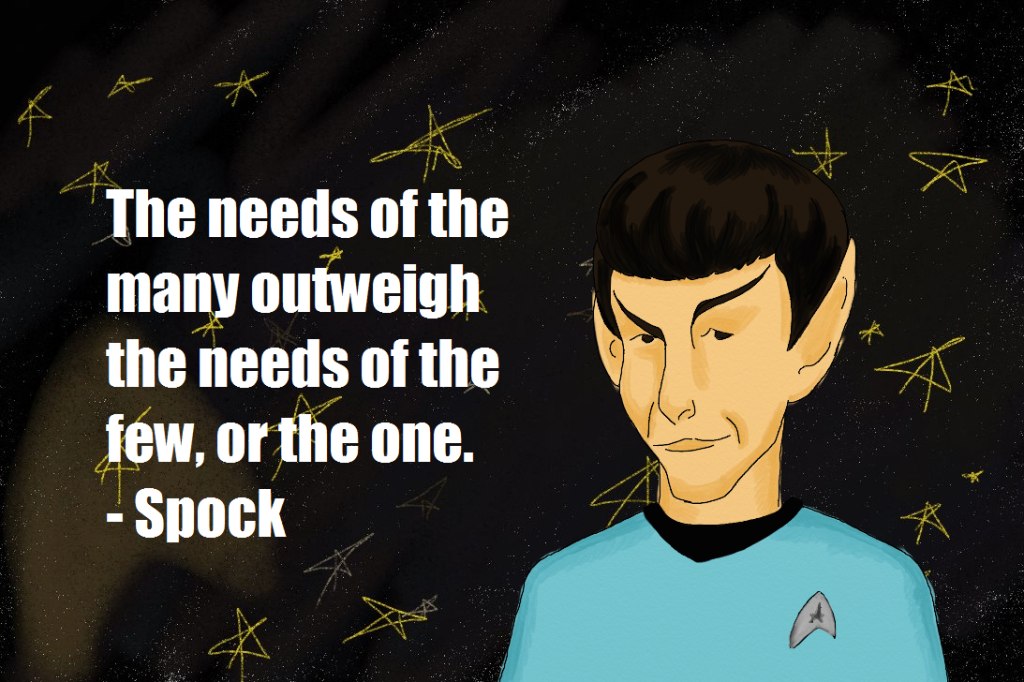

The needs of the many…”, and Kirk continues, “…outweigh the needs of the few.” Spock replies, “Or the one.” Now weakening rapidly, Spock struggles to finish the sentence: “Don’t grieve, Admiral. In his final moments, he refers to something he had said at the beginning of the movie: “Logic clearly dictates that the needs of the many outweigh the needs of the few,” to which his superior, Kirk, had added “…or the one.” The ship can get away, but Spock succumbs to radiation poisoning. Spock enters the highly radio-active engine room to carry out repairs. The laws of logicĪt the end of the 1982 Star Trek movie, The Wrath of Khan, the Enterprise and its crew are about to be obliterated, as the damaged propulsion mechanism prevents it from escaping disaster. He has a human mother and a Vulcan father, which gives him both the emotional characteristics we humans are familiar with, and the Vulcans’ aspiration to live by logic and reason, with as little interference by emotion as possible. But good more modern drama, too, goes to the heart of humanity in depicting the choices its protagonists face.Ī personal favourite of your correspondent is Star Trek, the science fiction show in which Spock, the science officer on the starship Enterprise, is perhaps the most rewarding character when it comes to describing decision-making. Moral dilemmas and judgements are central to many of the bard’s plays, and he has been called one of the first and greatest psychologists. The works of William Shakespeare are often quoted to illustrate the rich and complex nature of human life.

(featured image: Isriya Paireepairit CC BY) Rules and laws matter, and they often matter even more when we don’t like them – because they protect the needs of the many against attacks by the powerful few


 0 kommentar(er)
0 kommentar(er)
